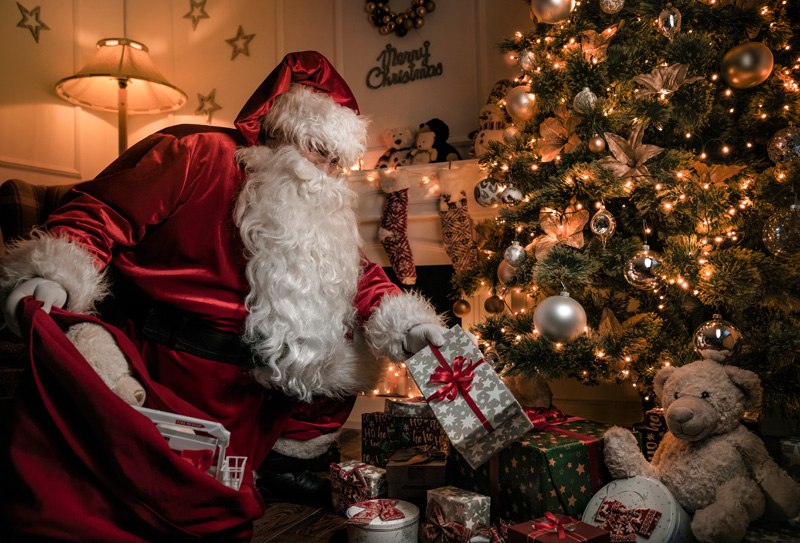It’s tradition. Your child writes his letter to Santa Claus, which might resemble a toy store inventory stock list than just a kid’s wish list. But among the action figures and other assortment of toys, there might be some big-ticket items, like a video game system that is more expensive than the other items. But before you buy it, wrap it, and put it under the tree with the rest of the presents, maybe you should reconsider if Santa should bring the expensive gifts?
Let’s face it: writing a letter to a jolly old guy in a red suit (and then getting everything they want) doesn’t exactly teach your kid the idea that some of these toys have a hefty price tag, and it’s you (and not Santa) who is footing the bill. “It is beneficial for children to understand that we earn that which we work for, that there is a connection between effort and reward,” says Dr. Tamar Blank, a licensed psychologist and the director and founder of Riverdale Psychology. When all the credit goes to Santa Claus for the new toys under the tree, the lesson can be lost.
That’s why parents can share some of the holiday glory with Mr. C., too. “It can benefit not only your own child, but other children as well,” says Katie Lear, LPC, RPT, a children’s counselor and play therapist. “If a child hears that Santa brought a friend an expensive gift, or if a child who received an expensive present doesn’t receive one the following year, he or she may assume they must have done something wrong. It can lead to feelings of guilt or low self-esteem.” By splitting Santa duties, you’ll actually teach your child did wrong to upset Santa, but that sometimes only certain gifts can be gotten. “Santa may not have to work too hard to provide gifts for children, but parents often do,” says Lear. “Acknowledging that it takes some effort to put gifts under the tree can help children feel more appreciative and value their presents more.”
But if you’re worried that telling your child that you and your partner provided some of the pricier gifts might ruin the idea of Santa Claus, don’t be. “Children are naturally so imaginative, that claiming one gift to be from a parent isn’t likely to burst the bubble of belief in Santa Claus,” says Lear. “Clarifying that both Santa and parents give gifts allows for more flexibility, and can help children to cultivate a sense of gratitude for what they receive each year.”
By teaching your child that some gifts come from Santa Claus and some from you might actually help your child to develop empathy and gratitude for what they get in terms of presents both big and small. And that just might be the biggest gift of all.




